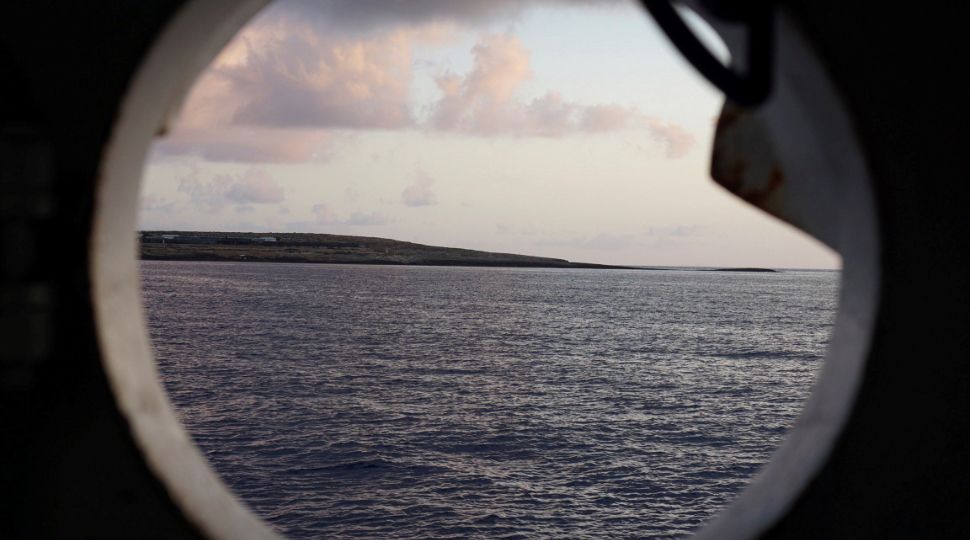Turkey’s Relations with Greece and Cyprus: Old Challenges Resurface

An increase in Turkey’s violations of Greece’s border and espionage charges against two Greek soldiers who Greece says accidentally crossed the border are raising tensions in the region. According to the Greek Ministry of Foreign Affairs, in 2017 alone, Turkish Armed Forces’ planes violated Greek airspace 3,317 times and its ships crossed Greece’s maritime border 1,998 times. The total was twice more than in 2016 and four times more than in 2015. At the end of February, two Greek soldiers who crossed the Turkish border were arrested and charged with espionage. When it comes to Cyprus, the blocking of drilling ship belonging to Italy-based energy firm Eni by a Turkish fleet in February is adding to the tension. The ship was supposed to begin exploration for natural gas off the Cyprus coast.
What’s behind the Rising Tensions
In June 2016, eight Turkish soldiers who were part of the failed coup entered Greece and requested asylum. Turkey demanded their extradition, but a Greek court did not approve of the request, instead citing the risk to their human rights if turned over to Turkey. Turkish politicians criticised the decision and Chief of General Staff Hulusi Akar sailed past the Imia/Kardak islets on a warship. The gesture was symbolic because the dispute about the islets brought Turkey and Greece to the brink of war at the turn of 1995 to 1996. Ultimately, the confrontation was avoided thanks to U.S. mediation, but this did not stop further incidents between Turkey and Greece in the following years. Moreover, neighbouring countries have not found compromise on the limits of the territorial waters and airspace. Greece, which ratified the Convention on the Law of the Sea of 1982, has been reserving its right to stretch its territorial waters claim to 12 nautical miles, which would reduce international waters significantly and alter the balance to Greece’s advantage. Turkey, which is not party to the Convention, argues that Greek unilateral actions extending its territorial waters would be considered casus belli.
The delimitation problem returned to the forefront after Turkish President Recep Tayyip Erdoğan made a political alliance with nationalists in 2016, after which his rhetoric on Greece turned revisionist. The president’s December 2017 visit to Athens was a case in point. The first visit by a Turkish head of state to Greece in 65 years resulted in higher tensions, with Erdoğan proposing to revise the Treaty of Lausanne, part of which regulates the border between Turkey and Greece and the rights of minorities. Greek President Prokopios Pavlopoulos objected to the proposal. The atmosphere in bilateral relations became even worse during Turkey’s efforts at rapprochement with the EU and normalising ties with the U.S. when Greece became the main target of Turkish politicians’ anti-Western rhetoric, used to mobilise the electorate.
Turkey and Cyprus
The source of recent tensions between Turkey and Cyprus lay in the fiasco of last year’s talks on reunification of the island. Turkish politicians repeatedly claimed that should presidents Nicos Anastasiades (Republic of Cyprus, RC) and Mustafa Akıncı (unrecognised Turkish Republic of Northern Cyprus, TRNC) not find compromise on Cyprus’ status, Turkey would do everything at its disposal to impede the exploration of the island’s offshore natural resources. The Turks claim that Greek Cypriots and Turkish Cypriots are “co-owners” of the island and as such they should benefit equally from resource exploration. According to press reports, during the negotiations last year Turkey exhibited a far-reaching willingness to compromise (it was even claimed that Turkey agreed to reduce its military contingent in Northern Cyprus). The fiasco that resulted strengthened Turkish politicians’ conviction that agreement is impossible due to Greek Cypriot obstruction, boosting the Turks’ inclination to defend the interests of the Turk Cypriots. The firm reaction of Turkish decision-makers towards resource exploration stemmed from a belief that the Republic of Cyprus was trying to take advantage of the circumstances—specifically the Turks thought the Greek Cypriots decided to initiate the exploration because they assumed Turkey would be distracted by its military campaign in Syria and would not counter it.
Turkey’s stance towards Cyprus, as in the case of Greece, has been influenced by the nationalist turn of President Erdoğan, His support for the TRPC also serves as an instrument to mobilise his supporters. Moreover, blocking the resource exploration near Cyprus may be seen as a tool to pressure the Greek Cypriots—and through them also the EU—to solve the Cyprus problem. It is conceivable that by its actions Turkey will try to push through its own ideas for the island’s future. Recent reports in Turkish media claim that solutions suggested by Turkey may include abandonment of the idea of Cyprus reunification for an alternative of two independent states in the concept of “two Cypriot states in the EU.”
Prospects
Because President Erdoğan needs to fire up his voters before the recently announced snap parliamentary and presidential elections on 24 June, one may expect tensions between Turkey and Greece to worsen. In a slightly longer perspective, the considerable prospect of disputes between the countries is also influenced by the 2019 parliamentary elections in Greece, which may prompt Greek politicians to take a tougher stance on Turkey.
Open confrontation between Turkey and Greece seems unlikely. The countries are so experienced in mutual provocation that they are also capable of diminishing the consequences. Yet, the persistence of tension between them carries the risk of an incident with a considerable escalation potential. One possible scenario is if Greece shoots down a Turkish unmanned aerial vehicle (drones), which have been increasingly used to violate Greece’s borders. Furthermore, new factors that affect these old disputes deserve attention. One is Turkey’s growing military potential in comparison to Greece, particularly visible since 2010 (according to NATO data, in 2017 Turkey’s military spending reached $12.1 billion compared to Greece’s $4.7 billion). What is more, and not without significance, is Turkey’s greater inclination to reach for military means to advance its interests as a result of modernisation and the military’s greater subjugation to the foreign and security policy of President Erdoğan. These factors mean that the balance of power between Turkey and Greece is leaning more and more clearly in Tukey’s favour.
A change in Turkey’s stance on Cyprus still has low probability. One may expect the Turks will do their best to impede the Republic of Cyprus’ exploratory and drilling efforts, although blocking American and Qatari firms may prove difficult. It is probable that Turkey will try to put pressure on Cyprus authorities through other instruments, such as increasing the TRPC population. Some financial incentives to encourage Turkish Cypriot emigrants to return to the island would serve this aim.
Conclusions for the EU
The tensions between Turkey, Greece, and Cyprus are not in the EU’s interest. This is because, first, they further complicate energy resource diversification projects, second, they increase the instability in the European neighbourhood, and third, they make Union policy towards Turkey more difficult to execute. Calming the tensions in the Aegean and the Eastern Mediterranean and stabilising the region are in the EU’s interests. To reach this aim, the EU may intensify its engagement in solving the Cyprus problem.[1] Creating a special fund under its supervision for exploration of the island’s natural resources that would be operational once compromise between the RC and TRPC is reached, may be helpful and could diminish Turkey’s confrontational approach towards Greece. However, the EU may also reach that aim by further cutting its pre-accession assistance to Turkey as a result of the country’s breach of the political aspect of the Copenhagen criteria.
[1] K. Wasilewski, “Cyprus Reunification Talks: Conclusions for the EU,” PISM Bulletin, no. 42 (982), 28 April 2017.




